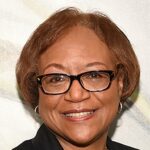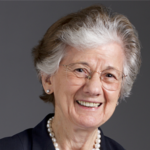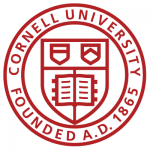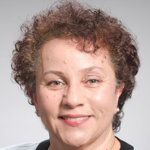 All Entries in the "STEM Fields" Category
All Entries in the "STEM Fields" Category

Grants or Gifts Relating to Women in Higher Education
Here is this week’s news of grants and gifts that may be of particular interest to women in higher education.

Ruby Perry Receives Lifetime Achievement Award From the American Veterinary Medical Association
Dr. Perry is a professor of veterinary radiology and dean of the College of Veterinary Medicine at Tuskegee University. She has the distinct honor of being the first-ever African American woman board-certified veterinary radiologist.

Alexandra Newton Honored for Outstanding Research in Protein Science and Human Health
Dr. Newton is a Distinguished Professor of Pharmacology at the University of California, San Diego. She also serves as director of Cell Signaling San Diego, a collaborative center for molecular mechanism research.

Study Reveals Surprising Prejudice Against Women in Science
A new study has revealed a prejudice known as “the reverse Matilda effect,” where both men and women view any given STEM field as less attractive if they are aware that women have made significant contributions to that field.

Women’s Representation Among Ophthalmology Faculty Has Slowly Progressed Over the Past Fifty Years
A new study has found women’s representation among academic ophthalmologist has seen slow progress since the 1960s. This underrepresentation was particularly found among tenured professors and department chairs.

In Memoriam: Maxine Frank Singer, 1931-2024
Dr. Singer was pioneer in the field of molecular biology. She held several leadership roles with prestigious research institutions, and was influential in advancing diversity in STEM.

Grants or Gifts Relating to Women in Higher Education
Here is this week’s news of grants and gifts that may be of particular interest to women in higher education.

The American Chemical Society Presents Its Highest Honor to Frances Arnold
Dr. Arnold was honored for developing a bioengineering method known as directed evolution. She first developed the method in the 1990s. Today, it is used by laboratories across the globe to make effective and sustainable chemical and biological products.

Lauren Gardner Recognized for Developing AI Systems to Discover and Track Potential Pandemics
In January 2020, Dr. Gardner, was essential in creating a web-based COVID-19 dashboard at Johns Hopkins University that was used as a global resource for tracking the pandemic. She teaches at Johns Hopkins as the Alton and Sandra Cleveland Professor in civil and systems engineering.

Study Investigates Factors Leading to Perinatal Suicide in the United States
Perinatal suicide, a leading cause of death among pregnant women and new mothers, is especially prominent in the United States compared to other developed countries. A new study has found mothers who die from perinatal suicide were more likely to experience mental health disorders, substance abuse, and intimate partner violence.

In Memoriam: Mildred Stahlman, 1922-2024
Dr. Stahlam began her career at the Vanderbilt University medical school in 1951 and remained on the faculty until her death. She was a pioneer in advancing the treatment for lung disease in premature infants and established one of the first newborn intensive care units dedicated to treating babies with respiratory complications.

Telling Students to Follow Their Dreams May Contribute to the Persisting Gender Gap in STEM
According to a new study from the University of Washington, when women undergraduate students are given advice to “follow their passions” in choosing a college major, they are significantly less likely to show interest in a STEM field compared to their male peers.

Black Women in Texas Are Twice as Likely to Experience Severe Maternal Morbidity Than White Women
Severe maternal morbidity cases are considered “near misses” for maternal death because they could have resulted in maternal mortality if they were not properly identified and treated. A large majority of the Black-White SMM gap can be attributed to disparities in untreated preexisting health conditions.

American Medical Association Advocates for More Women and Gender Minority Populations in Clinical Trials
“The lack of participation of women and SGM in clinical trials has clear impacts on the care these populations receive. Despite changes in the regulatory environment, inequities in clinical trial participation and outcomes persist today,” said American Medical Association board member, Dr. Toluwalase Ajayi.

Rita Colwell Receives Lifetime Achievement Award From the American Society for Microbiology
In the 1960s, Dr. Colwell was the first researcher in the U.S. to develop a computer program to analyze bacteriological data. Her life-saving contributions in the areas of global infectious diseases, water, and health have earned her numerous prestigious awards including the National Medal of Science

Randi Martin Awarded for Distinguished Leadership in Cognitive Neuroscience Research
Dr. Martin’s research focuses on cognitive neuroscience, the psychology and neuropsychology of language, and short-term memory. She has taught at Rice Univesity for over 40 years, currently directing the T.L.L. Temple Foundation Neuroplasticity Research Laboratory.

Jacqueline Beatty Recognized for Innovation in Dietetics Education
As an assistant professor of nutrition at Simmons University, Dr. Beatty teaches courses and conducts research on clinical nutrition, eating disorders, sports nutrition, and chronic disease prevention through lifestyle health behaviors.

Despite Increases in Dermatologist Representation, Women Lag Behind in Dermatology Research Participation
Despite women representing 52.2 percent of all dermatologists in the United States, women’s representation in senior authorship among academic dermatology articles has declined over the past 15 years.

Grants or Gifts Relating to Women in Higher Education
Here is this week’s news of grants and gifts that may be of particular interest to women in higher education.

Three Women Honored With 2024 Kavli Prizes in Astrophysics and Neuroscience
The Norwegian Academy of Science and Letters awarded Sara Seager with a Kavil Prize in Astrophysics. Nancy Kanwisher and Doris Ying Tao were awarded Kavil Prizes in Neuroscience.

An AI Teammate With a Woman’s Voice Can Increase Productivity Among Women Employees
Previous studies on organizational culture have found teammates from underrepresented backgrounds have higher performances when working with teammates of a similar background. A new study has found introducing AI programming that aligns with a minority teammate’s background can have the same result.

Study Examines Prevalence of Sexual Harassment and Discrimination Among OB/GYN Clinicians
Over the past 10 years, women’s representation among OB/GYN clinicians has significantly increased. However, despite the field being dominated by women, sexual harassment and discrimination were found to be prevalent among clinicians, especially medical students and surgical trainees.

Verna Hendricks-Ferguson Honored for Distinguished Pediatric Oncology Research Contributions
Dr. Hendricks-Ferguson’s current research focuses on making significant contributions to the pioneering study of palliative and end-of-life communication practices by pediatric oncology providers with parents of children with cancer.

Porché Spence Recognized for Outstanding Commitment to Advancing Diversity in Ecology
Dr. Spence currently serves as an assistant professor of environmental studies at North Carolina A&T State University. Throughout her career, she has developed several educational programs geared towards introducing students of color to environmental science fields.

Cornell University Study Reveals Potential Biological Predictor for Postpartum Depression
A team of researchers from Weill Cornell Medicine has found an association between postpartum depression and a steep drop off in immune cell RNA packages during the second and third trimesters of pregnancies.

An Update on Gender Equality in Research and Innovation
A new report from Elsevier has provided a status update on gender parity in global research and innovation. Although significant progress has been made over the past 20 years, disparities remain among STEM disciplines and advanced-career scientists.

Grants or Gifts Relating to Women in Higher Education
Here is this week’s news of grants and gifts that may be of particular interest to women in higher education.

Arizona State University’s Malena Español Recognized for Outstanding Teaching in Mathematics
Dr. Español was honored for her outstanding scholarship and teaching influence at higher education institutions in the United States and Argentina. She currently serves as an assistant professor at Arizona State University.

Eight Out of Every Ten Women Polar Scientists Report Negative Experiences During Research Expeditions
Despite the large majority of women polar scientists reporting negative experiences, most women still wanted to continue doing polar research, suggesting an urgent need to improve their working conditions.

Marcia Rieke Honored With Gruber Cosmology Prize for Contributions to James Webb Space Telescope
Dr. Rieke has conducted decades of extensive research with NASA’s Hubble Space Telescope and James Webb Space Telescope. She was honored with the 2024 Gruber Cosmology Prize for her contributions to understanding infrared astronomy.

Virginia Sisiopiku Recognized for Excellence in Transportation Engineering Education
Dr. Sisiopiku has served as a professor with the University of Alabama at Birmingham for more than two decades, teaching and advising both undergraduate and graduate students in transportation engineering.

MIT Adds Six Women Scholars to School of Engineering Faculty
Abigail Bodner, Andreea Bobu, Samantha Coday, Anna Huang, Yael Kalai, and Jessica Stark have been appointed to the faculty of the School of Engineering at the Massachusetts Institute of Technology.

American Society for Mechanical Engineers Honors Xin Zhang With Its 2024 Lecture Award
Dr. Zhang has been a faculty member in the department of mechanical engineering at Boston University for over two decades. Her research centers round the development of metamaterials and microelectromechanical systems.

Sarah Millholland Recognized for Outstanding Early Career Research in Astronomy
Dr. Millholand has served as an assistant professor of physics at the Massachusetts Institute of Technology for the past two years. She was honored for her outstanding contributions to the understanding of the formation and dynamics of extrasolar planetary systems.

Study Finds Women Early-Career Scientists Significantly Less Likely to Receive Grant Funding Than Male Peers
Achieving tenure is crucial for education professionals to gain academic freedom in their work and pursue research initiatives. However, a new study has found men are twice as likely as women to hold a tenured academic position in the life science fields.








